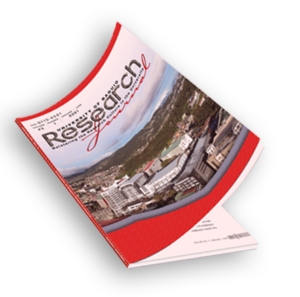
A look into the school experiences of UB graduating students
ABSTRACT
Globalization has intensified the competition among private universities, making it vital for higher education institutions to examine their strategic positions by evaluating existing services, and adapting to customers’ perceptions where the initial step is defining and measuring service quality. For the University of Baguio, an initial step is the conducted qualitative research utilizing the collated responses from the exit survey forms of the graduating students from the school year 2018-2019 and the first semester of the school year 2019-2020. The grounded theory process showed that both the satisfactory and unsatisfactory overall educational experience exhibited the different dimensions of the SERVQUAL model: reliability, assurance, tangibles, empathy, and responsiveness. Research findings also showed that the provision of quality education (reliability) made most graduating students satisfied, whereas improving facilities and amenities (tangibles) was made most dissatisfied. Accordingly, an action plan reflecting the research findings through strategies that can strengthen its edge has been proposed.
Authors
Leny O. Estacio, RGC1 and Mark Sherwin S. Latogan, RPm2
1Director, Center for Counseling and Student Development
University of Baguio, Baguio City, Philippines
ORCID ID: https://orcid.org/0000-0002-9375-4252
Email: [email protected]
2 SDF, Center for Counseling and Student Development
University of Baguio, Baguio City, Philippines
Keywords
school experience, student satisfaction, service, service quality, SERVQUAL
Issue
University of Baguio Research Journal
Vol. 45, No. 1 | January – June 2021
Published
- January 14, 2022
ISSN Information
(online) ISSN 2945-3321
This work is licensed under
CC BY-NC-ND 4.0

In this issue
Contact Us
- [email protected]
- [email protected]
- (074) 442-3036
- 77 General Luna Road, Baguio City Philippines 2600
